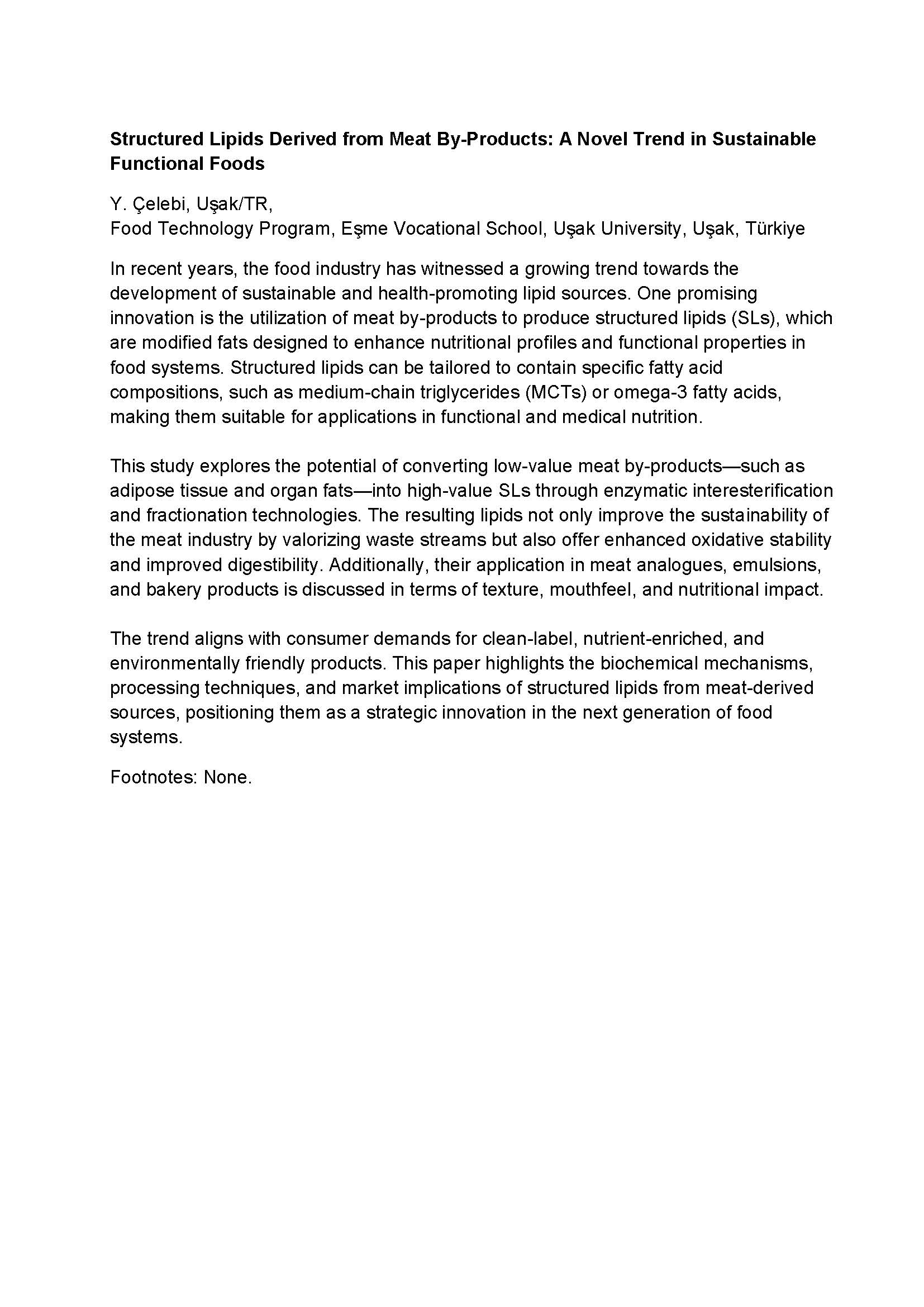In recent years, the food industry has witnessed a growing trend towards the development of sustainable and health-promoting lipid sources. One promising innovation is the utilization of meat by-products to produce structured lipids (SLs), which are modified fats designed to enhance nutritional profiles and functional properties in food systems. Structured lipids can be tailored to contain specific fatty acid compositions, such as medium-chain triglycerides (MCTs) or omega-3 fatty acids, making them suitable for applications in functional and medical nutrition.
This study explores the potential of converting low-value meat by-products—such as adipose tissue and organ fats—into high-value SLs through enzymatic interesterification and fractionation technologies. The resulting lipids not only improve the sustainability of the meat industry by valorizing waste streams but also offer enhanced oxidative stability and improved digestibility. Additionally, their application in meat analogues, emulsions, and bakery products is discussed in terms of texture, mouthfeel, and nutritional impact.
The trend aligns with consumer demands for clean-label, nutrient-enriched, and environmentally friendly products. This paper highlights the biochemical mechanisms, processing techniques, and market implications of structured lipids from meat-derived sources, positioning them as a strategic innovation in the next generation of food systems.
Footnotes: None.
